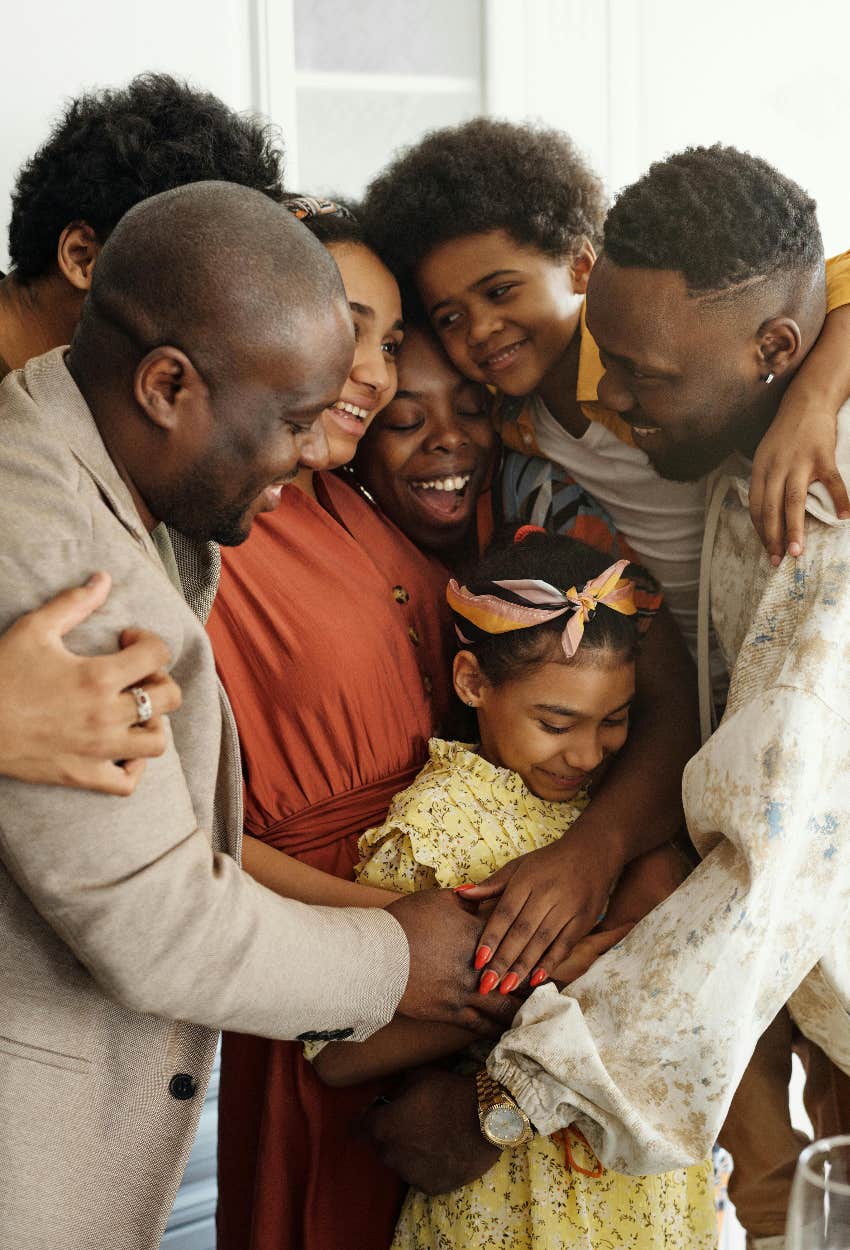If These 2 Words Describe Your Parents, Neuroscience Says You’re Extremely Emotionally Resilient
Parents can give their children a leg up to reach emotional resilience more easily by adopting certain traits.
 Inside Creative House | Shutterstock
Inside Creative House | Shutterstock If you asked parents what kind of kids they wanted to raise, emotionally resilient children would probably be pretty high on that list. All good parents want their kids to be able to withstand challenges with strength, and most adults would agree this is a trait they wish to have themselves.
A neuroscience expert who makes videos for the brand Cover Three on TikTok shared his thoughts about what really makes someone emotionally resilient. Apparently, if two particular words describe your parents, then you likely fit the bill.
The most emotionally resilient people had parents who were kind and firm.
In a TikTok video, a man from the brain health supplement company Cover Three revealed the secret to being emotionally resilient, and it all has to do with your parents.
“Neuroscience fact,” he began. “Spoiled rotten isn’t the play. The most emotionally resilient children have parents that mastered two words: firm and kind. I’ll explain the neuroscience behind this and what you can do about it.”
Instead of allowing kids to be spoiled and do whatever they want, he suggested that kindness is key, but it can’t go without firmness.
 August de Richelieu | Pexels
August de Richelieu | Pexels
“When you’re firm, without kindness, their amygdala goes into threat mode, like a smoke detector that just won’t stop beeping,” he explained. “When you’re kind, but not firm, their prefrontal cortex never learns boundaries. It’s like a GPS with no destination.” It’s essential for parents to mix the two traits together so kids get a taste of both. This will teach them what they need to know. “But when you combine both, magic happens,” he said. “Their brain learns ‘I am safe and I have limits.’”
By employing both kindness and firmness, parents signal to their children that they are loved and everything is okay, but also that they can’t just do whatever they want to. They build resilience because of the boundaries that back up the love that they feel.
The expert used an athletic coach as an example of the combination of kindness and firmness.
“Think about the best coach you ever had. They noticed what you did right and taught you when they thought you needed to do better,” he said. “Now, think of the worst coach,” he countered. “They just pointed out what you did wrong and made you feel terrible.”
This, he said, applies to parenting.
“Parents, you’re not just managing their behavior for today, you’re literally wiring their brain for lifelong resilience,” he shared. “Here’s an example. Set the boundary with love, not anger. ‘We don’t hit, and I’m here to help you when you’re frustrated.’”
Instead of a parent instructing their child not to hit in an angry tone with hurtful words about everything they did wrong, the parent can instead offer their support and encourage their child to do better.
Emotional resilience is something that takes time to build.
It’s no wonder that building emotional resilience starts in childhood. Resilience doesn’t just happen automatically, after all. Rather, it takes intentional work. With parents who are both firm and kind, this work can start early in life when you are still a child.
 Andrea Piacquadio | Pexels
Andrea Piacquadio | Pexels
If your parents didn’t possess these qualities, though, you can still develop emotional resilience. The American Psychological Association said there are “four core components” you can focus on to do so. They are connection, wellness, healthy thinking, and meaning. This can include everything from working towards goals to joining a new group to practicing self-care to staying positive.
Building a habit like this is something that can last well into adulthood, and hope is not lost for those who didn’t have parents who followed this formula. However, if your parents can be described as kind and firm, there’s a good chance that you’re even more emotionally resilient than you realize.
Mary-Faith Martinez is a writer with a bachelor’s degree in English and Journalism who covers news, psychology, lifestyle, and human interest topics.

